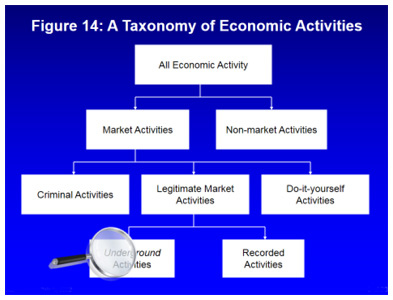 A 98-page report produced by Stockton University’s William J. Hughes Center for Public Policy last June presents a detailed look into the “underground construction industry” in New Jersey. Titled The Underground Construction Economy in New Jersey, the report lists specific ways that “off-the-books labor,” also called worker misclassification, damages the construction industry, cheats the misclassified workers, and costs the state government and ultimately local taxpayers millions of dollars each year. Best practices for dealing with the illegal practice are identified in the report, and the report concludes with 15 policy recommendations for the State. From page 12 of the report:
A 98-page report produced by Stockton University’s William J. Hughes Center for Public Policy last June presents a detailed look into the “underground construction industry” in New Jersey. Titled The Underground Construction Economy in New Jersey, the report lists specific ways that “off-the-books labor,” also called worker misclassification, damages the construction industry, cheats the misclassified workers, and costs the state government and ultimately local taxpayers millions of dollars each year. Best practices for dealing with the illegal practice are identified in the report, and the report concludes with 15 policy recommendations for the State. From page 12 of the report:
“Based on the review of best practices in other states, we outline 15 policy recommendations for the State of New Jersey (page 90). Recommendations #1 through #4 are related to the structure and functions of state government entities that have duties related to employee misclassification. Recommendations #5 and #6 deal with the definition of independent contractor. Recommendations #7 through #9 call for increased education. The final five recommendations deal with enforcement issues.”
An article by investigative reporter David Matthau posted on New Jersey News Radio station WKXW 101.5’s website quotes John Froonjian, one of the authors of the Stockton report and a senior research associate and manager of the Stockton Polling Institute. Froonjian:
“The construction underground economy, it’s probably worth at least $640 million and our ranges go from half a billion to $1.2 billion dollars and it involves 35,000 workers across New Jersey. This means at least $20 million in lost taxes and unemployment insurance that is not being paid. But that’s even a conservative estimate based on the low wages that are paid to underground workers. If these were legitimate workers being paid by legitimate companies that obey the law, the taxes would be much higher.”
From Matthau’s article:
“The authors note average hourly construction wages in New Jersey were higher than surrounding states and much of the country in 2007. But over the past eight years, hourly wages have dropped a staggering 7.6 percent. During the same period, wages increased in New York and Pennsylvania even though construction output in New Jersey has been higher.”
More and more states are realizing that unscrupulous contractors will continue to grow the underground construction economy unless measures are taken to stop them. As the report states, “Policies to reduce the size of the underground economy in the construction industry require cooperation among various state agencies, the federal government, labor unions, employer trade associations, and employers.”
The entire research report may be downloaded from the attachment below.
Research Report: The Underground Construction Economy in New Jersey
by Elizabeth McPherson | December 05, 2016


